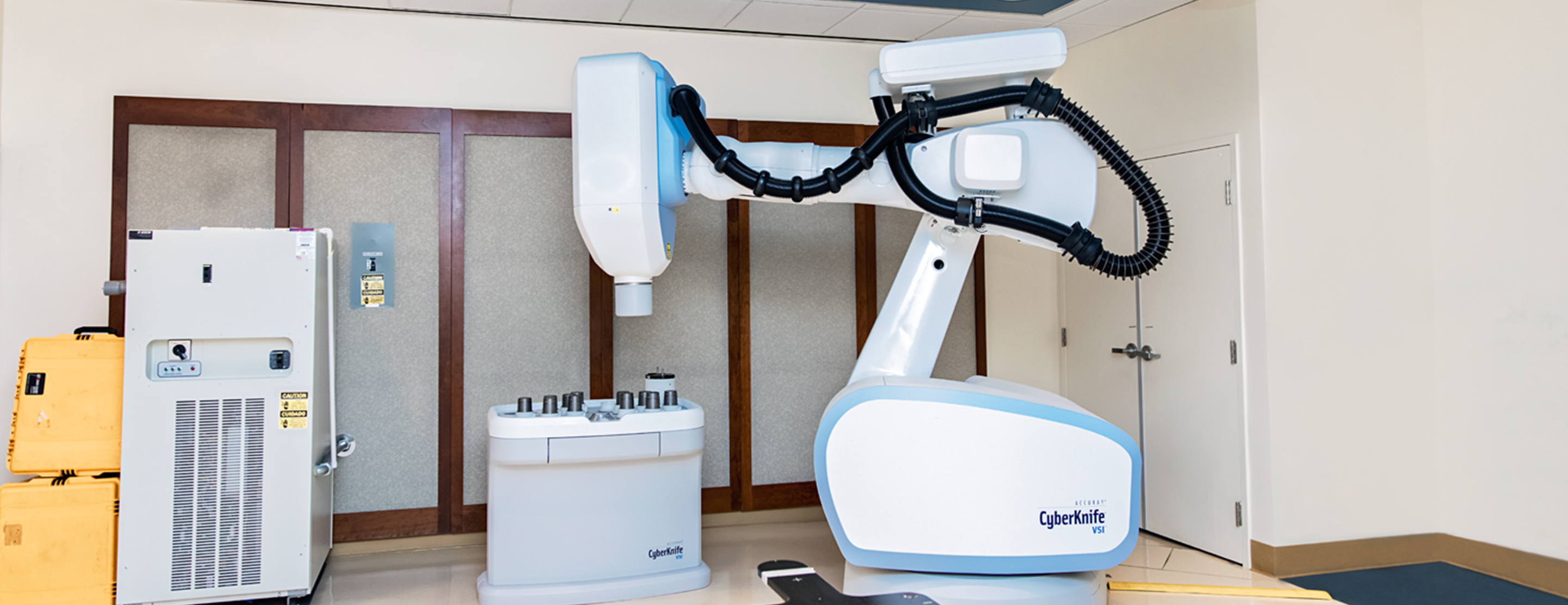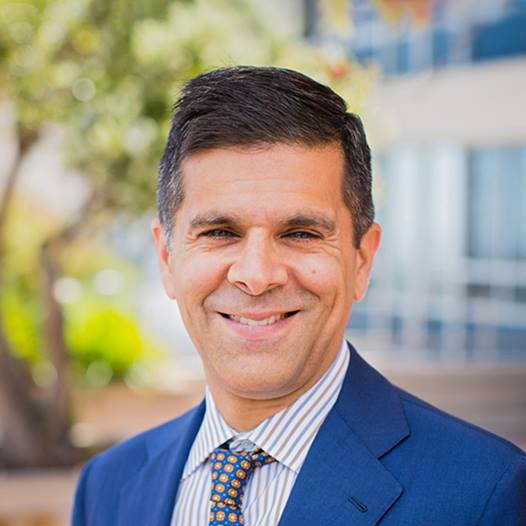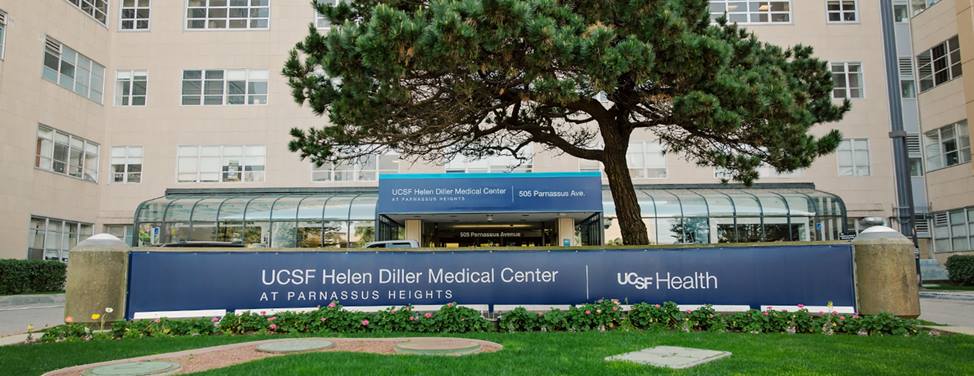UCSF, which began offering CyberKnife treatments in 2003, is one of only a few medical centers in California that offer the procedure. In many cases, patients treated with the CyberKnife today would have previously been considered untreatable with surgery or conventional radiation therapy.

Cyberknife
Radiosurgery minimizes radiation exposure to healthy tissue surrounding the tumor. Compared to other radiosurgical treatments, the CyberKnife offers several advantages to patients, including rapid relief from pain and other symptoms.
Treatments are performed on an outpatient basis, with each treatment lasting between 30 to 90 minutes. The number of treatments vary depending on the tumor size, location and shape, but typically only one to five daily sessions are required. The CyberKnife allows patients to lie comfortably on the procedure table without anesthesia while the robotic arm moves, without touching them, to treat all areas of the tumor.
Recovery is often immediate, given its low risk of complications and damage to healthy tissue.
Some conditions may be treated with a different non-invasive radiotherapy device called the Gamma Knife, which also delivers a single, finely focused, high dose of radiation. At UCSF, the Gamma Knife is used primarily to treat small benign or malignant brain tumors, epilepsy, trigeminal neuralgia or abnormal blood vessel formations located in the brain.
UCSF Health medical specialists have reviewed this information. It is for educational purposes only and is not intended to replace the advice of your doctor or other health care provider. We encourage you to discuss any questions or concerns you may have with your provider.

















